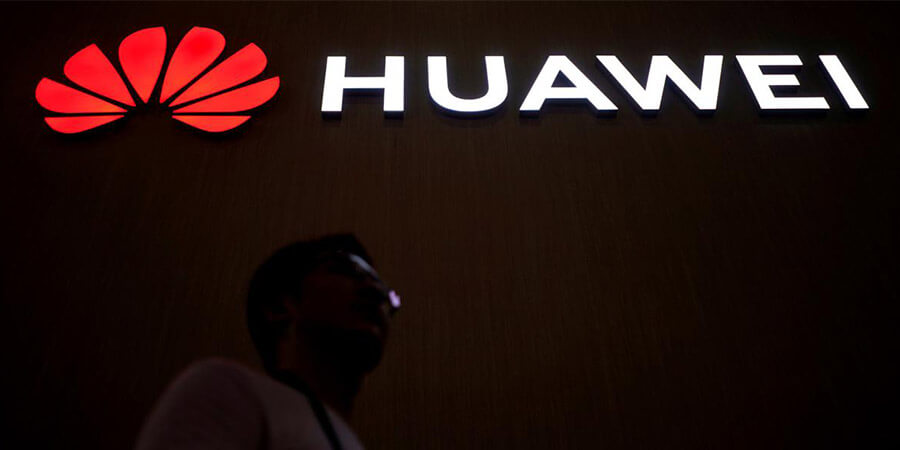Huawei announced its business results for the first half of 2018. In the first six months of this year, Huawei generated CNY325.7 billion in revenue, an increase of 15% over the same period last year. The company's operating margin in 2018 H1 was 14%.
Huawei continues to boost the efficiency and quality of its operations, which has helped contribute to its solid performance. The company expects to maintain this momentum and round out the year in a strong financial position.
In its carrier business, Huawei continues to focus on leveraging its strengths in end-to-end 5G solutions, driving the continuous evolution of LTE - as well as Intent-Driven Networks, cloud data centers, and more - to help its carrier customers overcome practical business challenges. Ultimately, the shared goal is to help carriers future-proof their businesses by enabling All-Cloud networks, connecting more people and things, and building out network infrastructure.
Huawei has also designed a number of scenario-specific solutions to help carriers maximize returns on their existing networks. The company uses agile, digital operations and end-to-end experience management solutions to help carriers provide a better-connected experience for people, homes, and organizations. It is also actively exploring ways to help carriers develop services that drive new business growth, including offerings for video, Internet of Things (IoT), premium home broadband, cloud-network synergy, and other domains.
In its enterprise business, Huawei remains committed to building integrated, innovative, and open digital platforms for its customers. These platforms enable governments and enterprises across all industries to innovate with greater agility and efficiency, go digital, and make their daily operations more intelligent. Huawei continues to innovate in advanced ICT domains including cloud computing, IoT, artificial intelligence (AI), and big data. Its data center, enterprise campus, Intent-Driven Network, all-flash storage, eLTE, and enterprise communications solutions have been widely adopted in sectors like government, energy, transportation, finance, and manufacturing.
At the same time, Huawei is actively working to cultivate and empower an industry ecosystem to support digital transformation. By building open ICT platforms, OpenLabs, and platforms for global marketing, training, and services, Huawei is attracting more and more partners, enabling joint innovation, and building an ecosystem around joint customer services.
In its consumer business, Huawei has maintained a tight focus on technological innovation to provide its users with greater value. 2018 milestones include:
- The Huawei P20 series, which leverages innovations in photography and AI to take smartphone photography to the next level.
- GPU Turbo, a revolutionary graphics processing acceleration technology that breaks through processing bottlenecks between Huawei's EMUI operating system, smartphone GPUs, and CPUs. It significantly improves the efficiency of graphics processing while reducing power consumption. By optimizing the balance between performance and power consumption, GPU Turbo is a huge boost to overall user experience.
- The Huawei MateBook X Pro, Huawei's first notebook with FullView design, which allows for a nearly borderless display. This new PC comes complete with a whole host of innovations, receiving high acclaim from the media and consumers alike, and cementing Huawei's position in the premium PC market.
In the cloud domain, Huawei has picked up the pace of its innovation in cloud infrastructure. Two major focuses include providing stable, reliable, secure, trusted, and sustainable cloud services for customers, and building an AI platform that is affordable, intuitive, and secure for all users. Specific progress in 2018 includes:
- In AI: Huawei Cloud launched EI Intelligent Twins, and released a series of services including deep learning, image search, and EI intelligent video to enable the practical application of AI in specific industrial scenarios.
- In cloud computing: Huawei launched C3ne, a network-enhancing cloud server that boosts forwarding performance to tens of millions of packets per second.
- In cloud security: Huawei Cloud received PCI-DSS certification, verifying compliance with the Payment Card Industry Data Security Standard (PCI-DSS) for all of its services and nodes - the first cloud service provider in China to do so. Huawei Cloud also passed all grading assessments for Level 4 Classified Cybersecurity Protection in compliance with Ministry of Public Security regulations in China.
As Huawei continues to gain trust and recognition in the market, more and more customers are migrating their core services to Huawei Cloud.
Huawei is committed to bringing digital to every person, home and organization for a fully connected, intelligent world. The company will continue to implement its pipe strategy, focusing on ICT infrastructure and smart devices to create value for customers, enable the digital and intelligent development of society, and secure sustainable growth.










